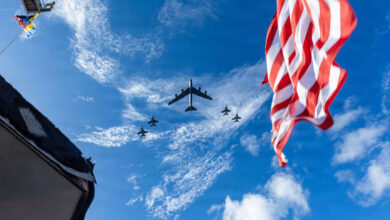
The Abdullah Azzam brigades, a Lebanon-based al Qaeda affiliate, said it was behind a double suicide attack on the Iranian embassy in Beirut on Tuesday, according to the Twitter page of a cleric linked to the group.
"The Abdullah Azzam brigades – the Hussein bin Ali cells – may they please God – are behind the attack on the Iranian embassy in Beirut," Sheikh Sirajeddine Zuraiqat, the group's religious guide, posted on Twitter.
The brigades threatened more attacks in Lebanon until Iran pulled its forces out of Syria and their prisoners were released from Lebanese jails, the post added.
The cultural attache at the Iranian embassy in Beirut was among at least 23 people killed in two explosions on Tuesday, Lebanese sources said.
A Lebanese official told Reuters that Ebrahim Ansari was killed in the explosions that Health Minister Ali Hassan Khalil said also wounded 146 people.
The explosions were the latest in a string of bomb attacks in Lebanon, which has fallen prey to Shia-Sunni sectarian violence linked to the two-and-half-year conflict in Syria.
Sunni rebel groups linked to al Qaeda have repeatedly condemned the military involvement of Iran and its Lebanese Shia paramilitary ally Hezbollah in the Syrian war, which turned the tide in favor of President Bashar al-Assad.
At least 66 people were killed in August in tit-for-tat bombings in Sunni and Shia strongholds in Lebanon.
Fires engulfed cars and facades of some buildings were torn off and carpets of shattered glass from nearby buildings covered the bloodied streets but the embassy's well-fortified building itself suffered relatively minor damage. Trees in the area were uprooted by the force of the blasts.
Soldiers in camouflage, firefighters and paramedics all rushed to the scene to evacuate the wounded.
The official Lebanese news agency said one of the bombs appeared to be a suicide attack.
Live footage from local news channels showed charred bodies on the ground as flames rose from the remains of several vehicles. Aid workers and residents carried away some of the victims in blankets.
A security source earlier said the blasts were caused by two rockets fired on the area, in the southern part of the city, but a second security source said one was a car bomb explosion.
There was no word on who was behind the blasts but Hezbollah official Ali Ammar said it would not deter the group, known by its supporters as the "resistance".
"Whoever did this is a monstrous terrorist…The resistance message is that it will continue. It will continue in all its efforts to defeat Israel and defeat the terrorists"
Shia Iran has been bank-rolling Assad's fight against the mainly Sunni rebels and has given military support. It also supports Hezbollah in Lebanon.
Southern Beirut is known as a Hezbollah stronghold and was hit by at least three other explosions this year. Those attacks were blamed on groups linked to the Syrian rebels, believed to be in retaliation for its involvement in Syria's civil war.
Hezbollah fighters have been supporting Assad's forces in several strategic battles across Syria against the Sunni Muslim rebels who are backed by foreign jihadis, a move that has also increased sectarian tension in the two countries.
The Syrian uprising has been mostly led by the country's Sunni Muslim majority and has been widely supported by Sunnis in Lebanon. Assad is from the minority Alawite sect, an offshoot of Shia Islam.




